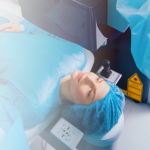Reasons and tips to maintain
your eyes healthy
Reasons and tips to maintain your eyes healthy
Keywords
Eye health, eye safety, Stop Smoking, nuclear cataract, glaucoma, diabetic retinopathy, eye care. How to protect your eyes, tips to maintain your eyes healthy, good eyesight naturally
Being one of the most sensitive organs of the human body, eyes need special care more than any other organ. Eyecare is an important health concern as the visual impairment can negatively affect independent living, quality of life, mental health and will also huge impact on accidental rates. To resolve these issues, it is important that the awareness and knowledge of eye health is a critical prerequisite for motivating behaviours and access to care.
People having any other health-related issues like diabetes or required some form of corrective vision must especially take extra care to prevent themselves from occurring any other severe eye conditions. Smoking, consumption of alcohol, proper diet impacts greatly for eye health. To understand what exactly the root cause of eye care professionals need to keep abeam information about the patient’s lifestyle and eye health so as to advice sound solutions. Take a look below to know all the reasons and tips on how to maintain your eyes and have good eye sight naturally.
Smoking

Many studies have indicated the role of smoking in the prevalence and commencement of Age-related Macular Degeneration. Smokers are easily prone to diseases like nuclear cataract, glaucoma, diabetic retinopathy and dry eye. People who prefer using contact lens have a tremendous risk of microbial keratitis if they are smoking. Current smokers are it men or women had higher odds of developing large drusen after 5 years than those who had never smoked or had quit.
Smoking is also associated with past cataract surgeries, i.e.
if the patient has had undergone through any cataract surgery and still smoking it is likely that he or she will sooner or later have affected vision. People who are depended on insulin for their diabetic conditions and if they continue to smoke it will eventually cause potential risk for vision loss.
Most of the time, people are easily associated with pipe smoking and cause nuclear cataract than getting associated with cigarette smoking. This type of behaviour is majorly observed between young generation. Hence, known effects on general health, sensible advice is not to smoke. People who are trying to “Stop Smoking” should join Stop Smoking Services or can also undergo nicotine replacement therapies.
Doctor should also ask the patient at their every follow-up visits to reduce and then quit smoking. They must also guide them through the process if required.
Diet
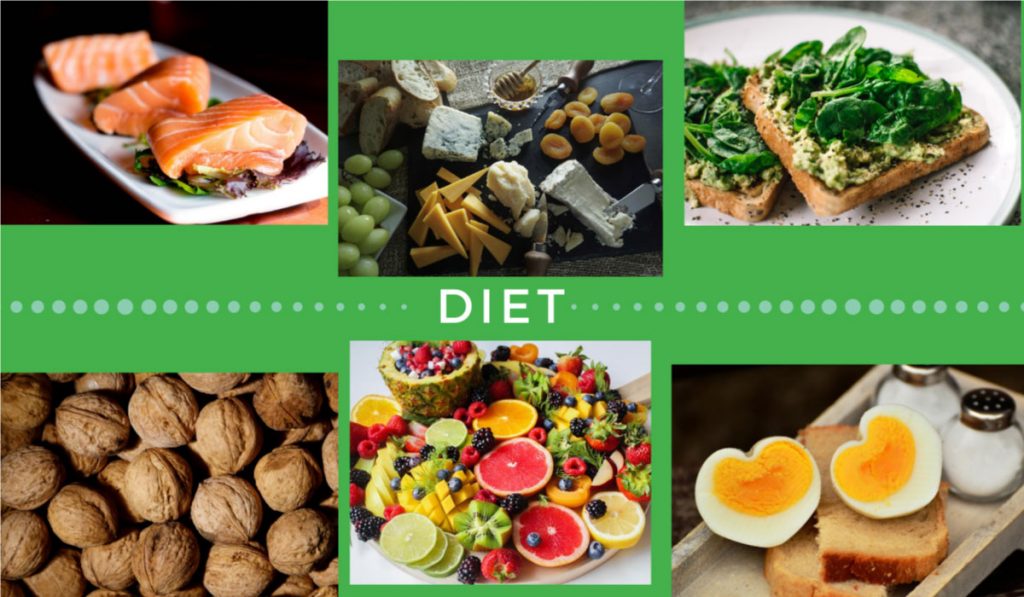
Keeping a healthy diet always helps to keep body fit. Eyes carry high activities, hence many studies and have reached to the fact that antioxidants like vitamins C and E and the carotenoids (plant pigments) B-carotene, lutein and zeaxanthin are especially helpful to prevent AMD (Age-related Macular Degeneration) and cataract.
Weekly if a person had two to three servings of oily fish, such as salmon, tuna, mackerel and herring, would achieve the recommended daily intake of omega 3, cutting the risk of both early and late-stage AMD.
Olive oil intake is also associated with a decreased prevalence of late AMD. One to two servings of nuts per week associated with reduced risk of an incident early AMD. Long-term use of multivitamins like B group and vitamin A supplements associated with reduced prevalence of nuclear or cortical cataract.
One can have a reduced prevalence of Nuclear Cataract by higher intakes of protein, vitamin A, niacin, thiamine, and riboflavin. Among specific foods high in carotenoids, broccoli and spinach help to diminish the risk of cataract.
Women were significantly less likely to have nuclear opacities than those in the lowest category. Tear dysfunction can be associated with the excesses of dietary fats, salt, cholesterol, alcohol, protein, and sucrose. If a patient has had a normal tear at its retina, he or she can have sufficient dietary protein, intake of vitamins A, B6 and C, potassium, and zinc will be helpful.
Sources of different nutrients in the diet
Nutrient
Dietary sources
Vitamin A
Cheese, eggs, oily fish (such as salmon, fresh tuna and mackerel), milk, margarine, yoghurt. Carrots, dark green leafy vegetables and orange-coloured fruits (eg mangoes and apricots) contain carotenoids, which are converted to vitamin A in the body
Vitamin C
Found in a wide variety of fruit and vegetables. Good sources include peppers, broccoli, Brussels sprouts, sweet potatoes, oranges and kiwi fruit
Zinc
Meat, shellfish, milk and dairy foods such as cheese, bread, and cereal products such as wheat germ
Vitamin E
Plant oils such as soya, corn and olive oil. Nuts and seeds, and wheat germ (found in cereals and cereal products)
Lutein, zeaxanthin
Spinach, kale, broccoli, red, orange and yellow peppers, mangoes, bilberries and corn
Omega-3 fats
Best sources are oily fish such as salmon, fresh tuna, trout and mackerel); vegetarian sources include vegetable oils, such as linseed, flaxseed, and rapeseed, and walnuts
Alcohol Consumption

Alcohol consumption was not a significant risk factor for AMD, glaucoma, diabetic retinopathy, retinal vein occlusion, pterygium, trachoma, optic nerve atrophy, dry eye, cortical cataract, subcapsular posterior cataract or nuclear cataract. In fact, the association between alcohol consumption and eye disease is comparatively weak than smoking.
Chronic alcoholism is associated with increased risk of cataract, keratitis, colour vision deficiencies and corneal arcus.
Heavy alcohol consumption (more than three standard drinks per day) or history of heavy drinking is associated with increased risk of early AMD, nuclear sclerotic, cortical, and posterior subcapsular opacities.
Recreational Drug use
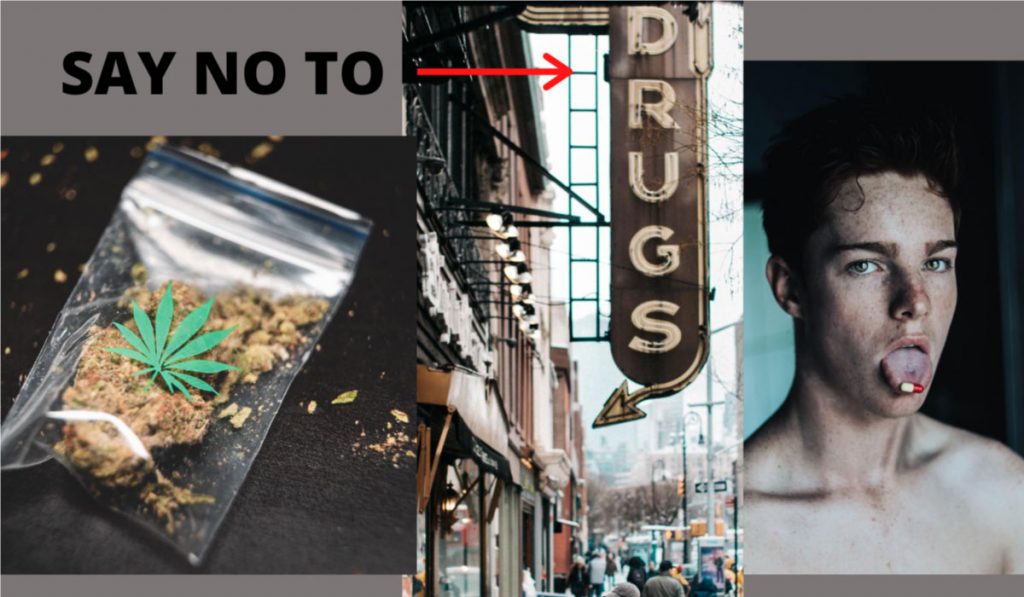
Nowadays with growing abuse of drugs, there is a high risk that can cause ocular injuries and disease as some group of people used clinically and others with no legal or clinical use.
Grouping the drugs into five categories (opiates, marijuana, stimulants, depressants and hallucinogens), the researchers describe the pharmacologic, congenital, toxic, infectious, embolic, and psychological ocular manifestations of their abuse.
Recreational use of these drug(s) may result in Ocular sequelae which may affect visual acuity, the eye and adnexa, ocular posture and ocular motility.
Cannabinoids (cannabis, marijuana, hashish) have therapeutic potential for a range of conditions, including glaucoma, yet it doesn’t include for any recreation use.
There should be proper awareness that is required to spread among drug abuser. This way they will be aware of the consequences of illicit drug use which might lead to more pertinent questioning during history-taking.
Exercise

Intraocular pressure transiently reduced by dynamic exercise. For most patient’s exercise is beneficial to the eyes by reducing the risk of central retinal vein occlusion and neovascular AMD, and by improving control of systemic hypertension. Diabetes Ophthalmologists should advise regular exercise with appropriate eye protection for its patients.
For patients in good general health, and motivated, an aerobic exercise program might provide a small decrease in IOP.
A small study has investigated positive effects of walking, jogging, and running fast until exhaustion on IOP in normal and glaucomatous subjects. Hence, eye practitioners should encourage light exercise, such as walking for glaucoma patients.
Obesity

AMD, diabetic retinopathy, cataract and glaucoma and shows obesity is a significant risk factor for these diseases and hence to blindness.
Obesity is also significantly associated with cortical cataracts but not a nuclear cataract. Hence, it is strongly recommended for obese people to undergo a proper diet as well as practise regular exercise to stay healthy and avoid unnecessary guests in your eye.
Light Exposure
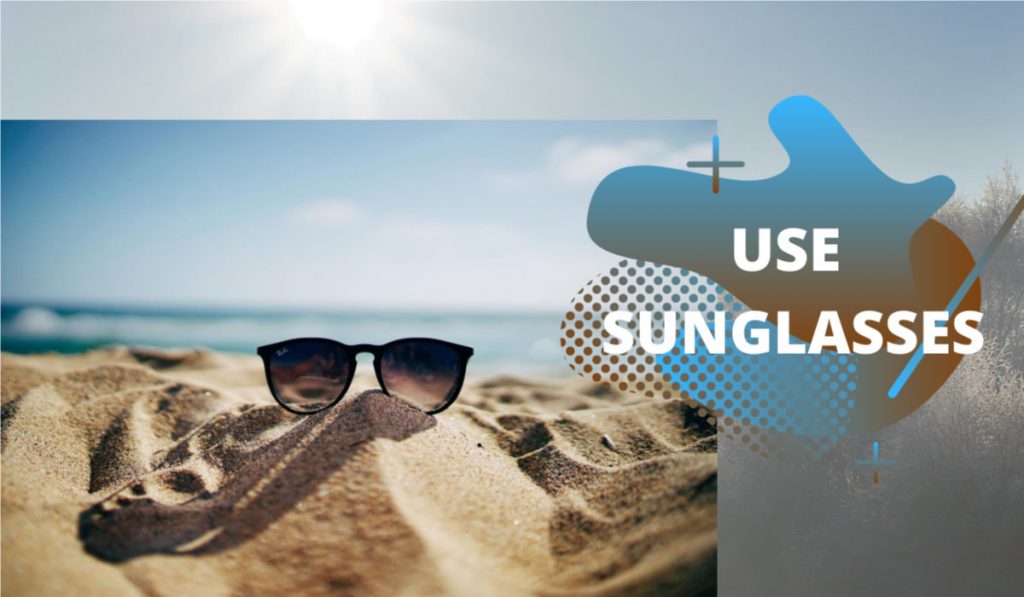
Many researchers have proved in their studies that there is significant evidence that clearly suggests a correlation between ultraviolet radiation (UVR) exposure and conjunctival pterygium, photo keratitis, climatic droplet keratopathy and cataracts.
Moderate cortical opacities were associated, at a borderline level of significance, with higher levels of sunlight exposure. There are also the possible risk factors for age-related nuclear and cortical cataracts in AREDS (Age-Related Eye Disease Study) participants aged 60-80 years.
Several researchers have recommendations to protect eyes against UV damage, UV rays. One should make use of a UV filter that stops most of the harmful rays of the sun entering the eyes. Most prescription glasses and some contact lenses now have a built-in UV filter. UV exposure found much higher where there are more reflective surfaces, for instance near water, so one should protect their eyes while at the beach, fishing, boating or on holiday. It happens to have intense the amount of reflected UV lights on or near snow, so it is always good to be prepared with required protection in these circumstances. Skiers and snowboarders should take particular care.
There are compelling reasons to counsel patients on the adverse effects of UVR and to offer them the various options available for UV protection. There is a British standard for sunglasses which should be looked for when buying them: BSEN 1836:1997. People who spend lot of their time under direct rays of sun or outdoors may need protection. Those living in countries with more sun may also need to take more care.
Eye Drops
Most of the time it has suggested that one should be compelled to use only prescribed medications. But at certain point, people acts irresponsibly and use non-prescribed medications. So whenever, you visit your ophthalmologist one must unequivocally inform about any prescribed or non-prescribed medication that are being used for any allergies that you may have. This is only way to stay clear from any wrong use of medications for your delicate eyes.
Use Quality Products while Eye Makeup
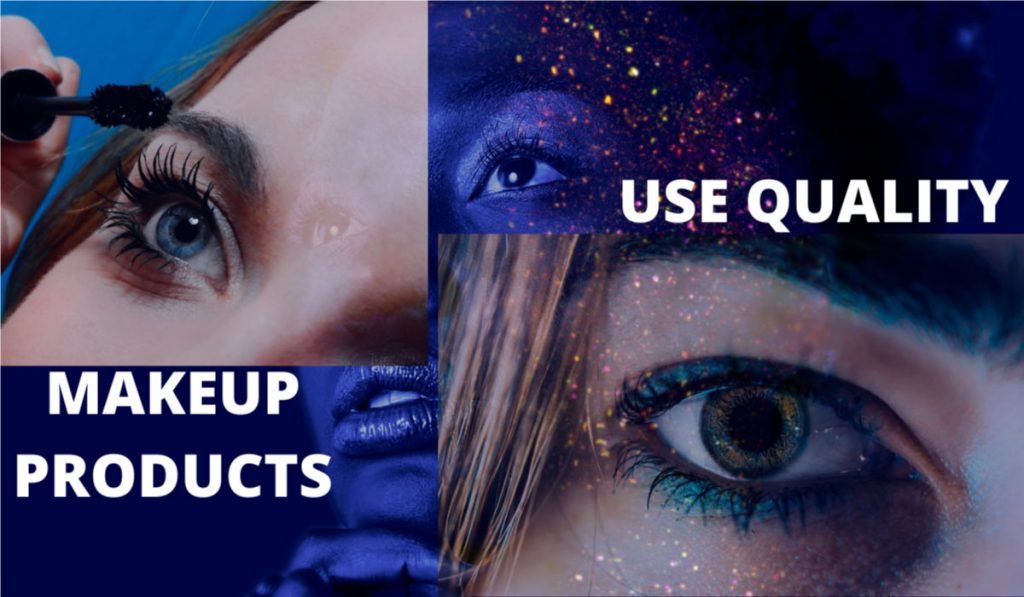
A bright yellow exclamatory warning sign is here for the ladies who prefer eye makeup. Inappropriate, fake, low-quality brands have flooded the market accompanied with its cheap rates and easy accessibilities. This may thrive harmful bacteria through products. Sharpening your eye pencil time to time is also as important as the quality to avoid getting hurt on your eye ball. Also, it is very important to note the expiry of eye make-up or any make-up products to avoid risk of infections.
Avoid Excessive Exposure to Computer Screens
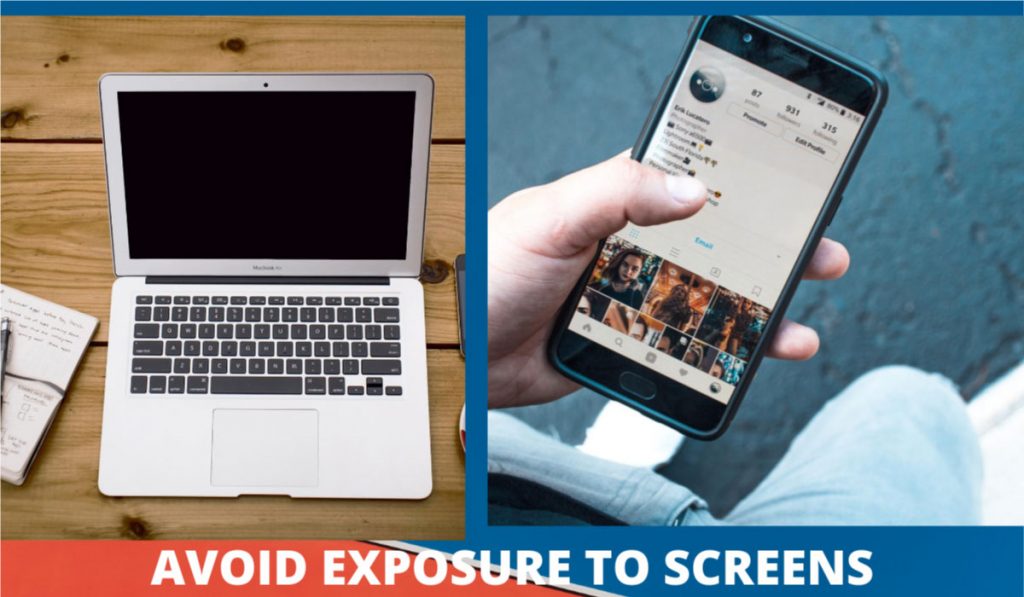
Along with increased pay scales and responsibilities, exposure to computer screens and all other types of screens have also increased. If you are one of them who uses a computer or mobile phone for a long time, then there are chances that you may have a strain on your eyes. Less exposure to computer screen will help your eyes to stay healthy.
Family eye history

Some of the times eye diseases had clustered in the family. These unnecessary gifts have been passed on to future generation. Carrying any increased risk without having any whereabouts will certainly lead to age-related eye diseases. Hence, it is always important to know family history and take necessary precautions at the right time.
Give proper rest to your eyes
It is equally important same as your body and mind that your eyes required proper timely breaks while working continuously on computer screens. Taking breaks at right intervals, for example: after every 20 minutes of screen time, one should blink their eyes for 20 seconds. It is also healthy for eyes to use any type of screen from a distance of 20 feet.
Let your eyes breathe
Unlike lungs and heart, eyes are not depended on another organ of the body to get oxygen. Fresh and pure air is directly supplied to the cornea of the eyes. So it is utmost important that your eyes should receive fresh and pure air so that they can breathe.
Not every time-sharing is caring

Understand that sharing is not always caring, sometimes sharing may also lead to unwanted bacteria sharing or even diseases. Sharing your towel, washers are a strict no-no. If you have been sharing the same towel, then there is a high risk of getting infections likes contagious eye or conjunctivitis (or pinkeye). Hence, it is always better to use separate face towels and face washers to prevent eyes.
Sleep Well
Sleeping is an essential routine that should be maintained to get good results on your health. In case if a person is not sleeping a minimum 6 hours daily, then the lack of sleep will definitely build strain on eyes or even redness in eyes.

